Reimagining Migration Policy: Towards a New Vision for the Age of Fragmentation— Joint Seminar with the National Institute of Population and Social Security Research
2025.08.07
A seminar titled “Reimagining Migration Policy: Towards a New Vision for the Age of Fragmentation” was co-organized by the JICA Ogata Sadako Research Institute for Peace and Development (JICA Ogata Research Institute) and the National Institute of Population and Social Security Research (IPSS) on June 12, 2025. Hayashi Reiko , Director General of IPSS, opened with remarks, introducing the seminar as an opportunity to reflect on the future of immigration policy, as immigration has become a divisive issue in many countries.
In his presentation, Korekawa Yu , Director of the Department of International Research and Cooperation at IPSS, challenged the notion of Japan as a homogeneous and closed society. He identified four key trends: the steady admission of over 300,000 foreign nationals annually; the expansion of the Specified Skilled Worker (SSW) program; a rise in permanent residency and social integration; and the growing appeal of Japan as a migration destination. He concluded by posing two questions to the keynote speakers—whether Japan is becoming an immigration state, and whether this shift is being driven by neoliberal nationalism.
Next, Saito Kiyoko , Senior Research Fellow at the JICA Ogata Research Institute, framed migration as a pressing human security issue, stressing the need to both protect and empower those facing overlapping threats. She highlighted the alarming rise in migrant deaths in Asia—over 9,000 in 2024—caused not only by violence and drowning but increasingly by illness and lack of healthcare.
Saito presented human security as a means to address “three nested circles” of threats: physical threats like natural disasters, ecological threats such as pandemics, and social threats including war and poverty, arguing that migration reflects the convergence of these crises. Migration, she concluded, should be viewed not simply as an economic process but as a matter of dignity, resilience, and shared responsibility—“a choice, not a necessity.”
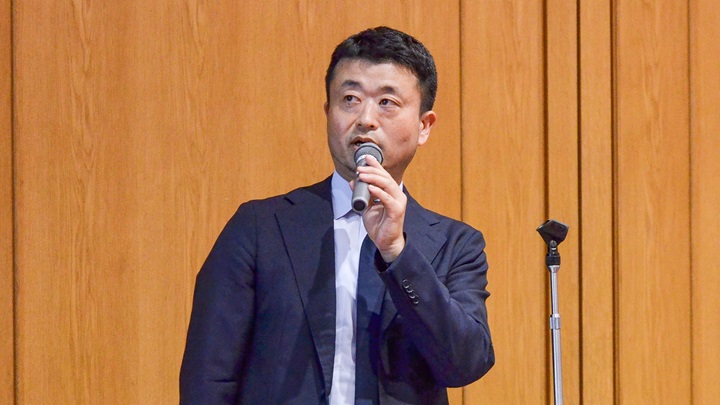
Korekawa Yu, Director of the Department of International Research and Cooperation at the National Institute of Population and Social Security Research
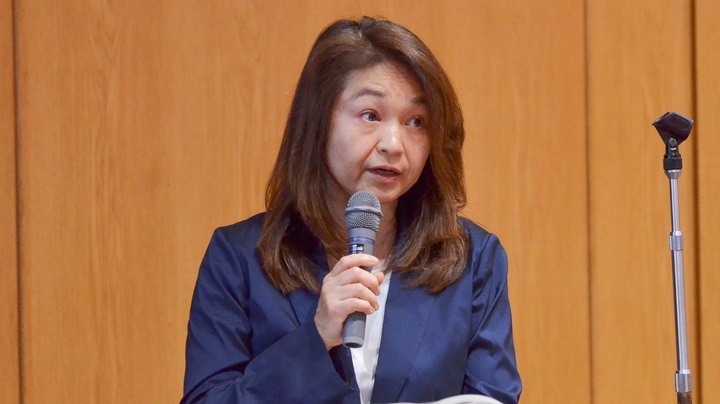
Saito Kiyoko, Senior Research Fellow at the JICA Ogata Sadako Research Institute for Peace and Development
Christian Joppke , Professor Emeritus at the University of Bern, Switzerland, explored the rise of “neoliberal migration policy,” where migrant selection is based on both usefulness to the economy and alignment with national norms. Joppke described this new logic as “neoliberal nationalism,” a new form of nationalism based on individual productivity and self-sufficiency. Treating both citizens and migrants as members of a “community of the thrifty,” citizenship is no longer seen as a right but something to be earned.
Using examples from the EU, he discussed how high-skilled migrants are often welcomed not just for economic reasons, but also because they align with middle-class nation-building goals. Family migration is now restricted unless economically justified, while asylum seekers are increasingly assessed through their contributions to the labour market. Though framed by humanitarianism, these policies often sideline rights-based protections. Joppke concluded with caution about Japan adopting this model, suggesting that Japan’s context remains distinct, but that there is a need to further institutionalize labour migration policies.
Hein de Haas , Professor at the University of Amsterdam, the Netherlands, challenged common assumptions about migration, arguing that migration is a normal and enduring feature of development. He stressed that economic development tends to increase migration—a pattern often misunderstood by policymakers who assume that aid or growth will reduce emigration. Describing migration as “a hopeful act, a manifestation of choice,” he argued that migration decisions are shaped by both aspirations and capabilities, meaning people are more likely to move as their education, income, and networks expand. Moreover, restrictive migration policies often backfire, pushing people into irregular pathways and increasing their vulnerability.
De Haas called for a shift away from politicised, emotional debates toward a more evidence-based conversation on migration’s drivers and impacts. He expressed concern that the “fight against illegal migration” will be used to attack the democratic state itself. He called for a new generation of leaders willing to take a more nuanced approach to migration issues.
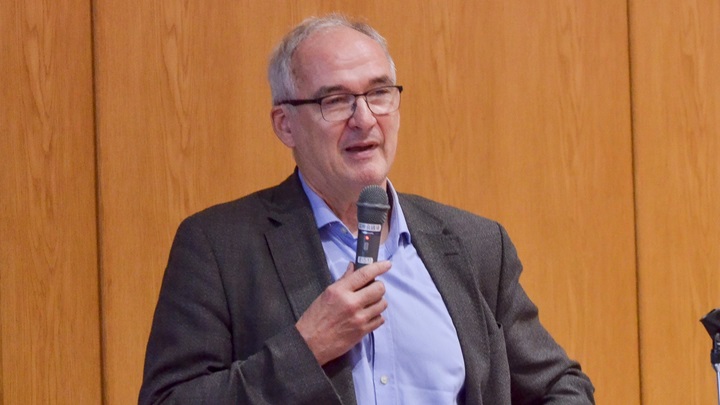
Christian Joppke, Professor Emeritus at the University of Bern, Switzerland
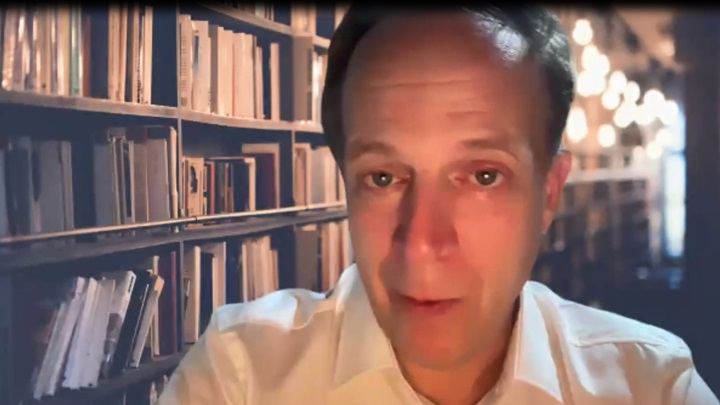
Hein de Haas, Professor at the University of Amsterdam, Netherlands
The panel discussion brought together Joppke, de Haas, Gracia Liu-Farrer , Professor at Waseda University, and Mine Yoichi , Executive Director at the JICA Ogata Research Institute. Korekawa commenced the panel discussion by asking how recent shifts in migration policy in liberal democracies should be understood in the light of rising concerns about migration, societal divisions, and political shifts. In response, de Haas argued that migration policies have actually become more liberal, but policymakers face an immigration trilemma: there cannot simultaneously be a truly open liberal market economy, a democratic state that upholds fundamental human rights, and policies that significantly curb immigration. This tension is often overshadowed by acts of political showmanship. In his reply, Joppke cited the 2015 refugee crisis and the Trump administration as striking recent events related to migration, highlighting the dangers of both excessive openness and extreme restrictions.
Liu-Farrer argued that Japan is an immigrant society, with legal settlement pathways and a growing foreign population, but that treating immigrants and their children as “permanently foreigners” creates alienation. Mine reflected on Ogata Sadako’s legacy, highlighting her emphasis on dignity, agency, and the protection and empowerment of refugees as central to the human security agenda. He stressed that most African migrants and refugees remain within their regions and argued that development actors like JICA play a key role in supporting countries that host displaced people.
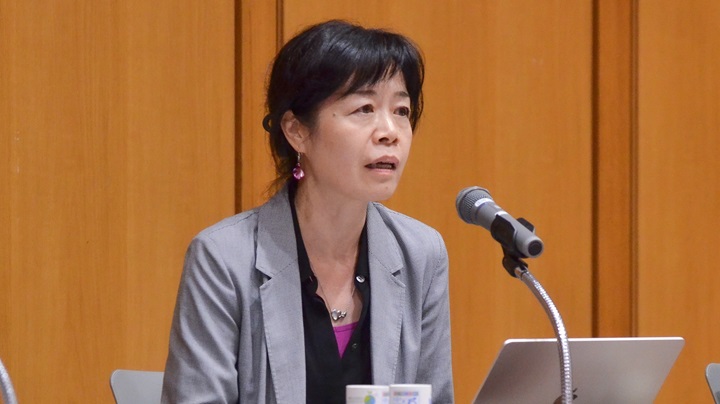
Gracia Liu- Farrer, Professor at Waseda University
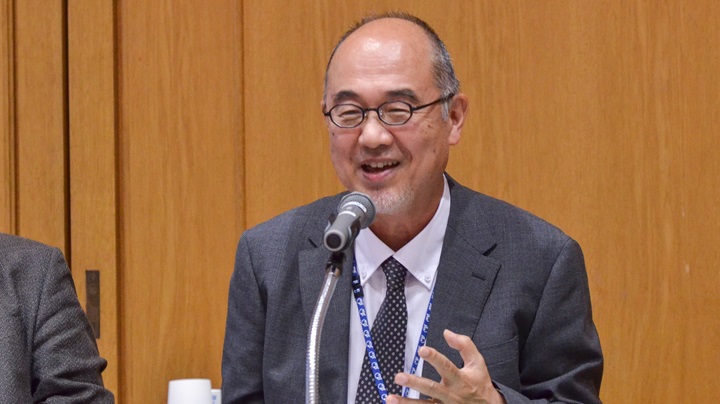
Mine Yoichi, Executive Director at the JICA Ogata Sadako Research Institute for Peace and Development
In the Q&A session that followed, the panellists answered the questions from the audience, such as how the capabilities and aspirations of workers in destination countries could be better supported.
In his closing remarks, Mine reaffirmed JICA’s commitment to human security, emphasizing that migrants are not merely economic tools but integral members of society whose dignity and well-being must be protected.
Click here to learn more about the JICA Ogata Research Institute's commitment to human security.
Video recordings of this forum are available to watch on the links below.

事業事前評価表(地球規模課題対応国際科学技術協力(SATREPS)).国際協力機構 地球環境部 . 防災第一チーム. 1.案件名.国 名: フィリピン共和国.

事業事前評価表(地球規模課題対応国際科学技術協力(SATREPS)).国際協力機構 地球環境部 . 防災第一チーム. 1.案件名.国 名: フィリピン共和国.

事業事前評価表(地球規模課題対応国際科学技術協力(SATREPS)).国際協力機構 地球環境部 . 防災第一チーム. 1.案件名.国 名: フィリピン共和国.

事業事前評価表(地球規模課題対応国際科学技術協力(SATREPS)).国際協力機構 地球環境部 . 防災第一チーム. 1.案件名.国 名: フィリピン共和国.

事業事前評価表(地球規模課題対応国際科学技術協力(SATREPS)).国際協力機構 地球環境部 . 防災第一チーム. 1.案件名.国 名: フィリピン共和国.